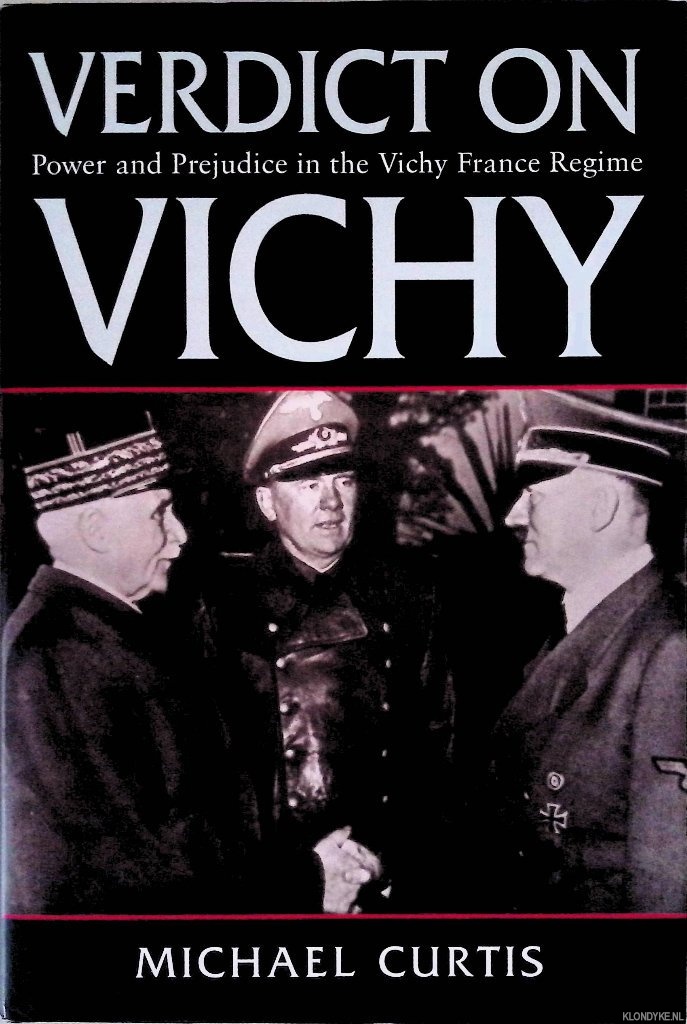
Onze boeken
Verdict on Vichy: Power and Prejudice in the Vichy France Regime
Door Michael Curtis
Categorie | WO II |
|---|---|
Boeknummer | #327361-XD18 |
Titel | Verdict on Vichy: Power and Prejudice in the Vichy France Regime |
Auteur | Curtis, Michael |
Boektype | Gebonden hardcover met stofomslag |
Uitgeverij | London : Weidenfeld & Nicolson |
Jaar van uitgave | 2002 |
ISBN10 | 0297842242 |
ISBN13 | 9780297842248 |
Taal | Engels |
Beschrijving | Original black boards, silver lettered spine, dust jacket, illustrated with b/w photographs, 8vo. |
Samenvatting | On May 10, 1940, Hitler's Panzer divisions launched an all-out offensive, sweeping through the Low Countries and the Ardennes. Despite France's impressive army and equality in weaponry, by mid-June the Germans had occupied Paris, Days later, a new Frnch government under Marshal Philippe Petain was formed, with its capital in Vichy. For the next four years France was occupied by the Nazis. What actually happened during that fateful period has been hard to assess, for many who collaborated later surfaced as prominent post-war figures in politics, business, and finance. Now finally, after almost six decades, the complex truth is emerging, as long-suppressed files are made public. Using the latest research, Michael Curtis examines the degree to which ministers and officials of the Vichy regime... (Lees verder), the legal and administrative system, the Church, the French police, and people in all walks of life, collaborated with the Nazis, especially regarding the fate of France's 330,000 Jews, one-third of whom perished in the Nazi death camps. Despite all we have learned about World War II atrocities, this is a book that will shock and anger. World War II still fascinates readers: this is an important, still relatively little-known aspect of that tumultuous period. Supplements and complements Robert Paxton's book on the subject, published 30 years ago. Analyzes postwar trials, including the recent, highly-publicized trials of Klaus Barbie and Maurice Papon. Reveals that Hitler's ally Mussolini was far more solicitous about and protective of Italian Jews than were the French. Prewar chapters demonstrate how the strength of anti-Semitism in France in the 1930s made Hitler's "final solution"much easier to implement. Answers the question: Why were the French, as opposed to many occupied countries in World War II, such zealous collaborators? |
Pagina's | 419 |
Conditie | Goed |
Prijs | € 9,00 |

Onze gebruikte boeken verkeren in goede tweedehands staat, tenzij hierboven anders beschreven. Kleine onvolkomenheden zijn niet altijd vermeld.










